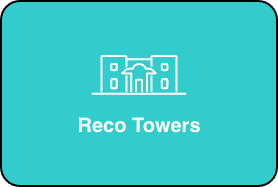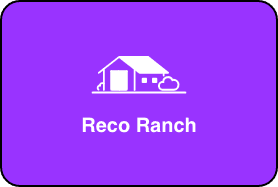Transition to Sobriety with Reco Institute’s Housing

Embarking on Your Recovery Journey
Understanding the Importance of a Supportive Environment
Embarking on a recovery journey from alcohol or substance use disorders is a monumental step that requires not only personal commitment but also a nurturing and supportive environment. The initial phase of sobriety is often filled with numerous challenges, making the surrounding environment critically important. A supportive environment fosters a sense of belonging, reduces feelings of isolation, and significantly impacts the recovery process positively. This environment includes supportive peers, access to compassionate professionals, and a safe, stable living situation that all play pivotal roles in nurturing individuals on their path to recovery.
The Role of Sober Living in the Rehabilitation Process
Sober living homes serve as a crucial bridge between residential treatment and a return to normal life. They offer a structured setting where residents can continue their rehabilitation process with the support of a sober community. Unlike traditional halfway houses, sober living homes, like those offered by RECO Institute, provide a deeper level of support and structure designed specifically for individuals in the early stages of their recovery journey. Residents are encouraged to engage in outpatient programs and attend 12-step meetings, promoting a lifestyle that supports long-term recovery. This phase allows individuals to practice sobriety in real-world settings with the safety net of a supportive network.
Mapping Out the Transition from Treatment to Sober Living
The transition from an inpatient treatment program to a sober living environment is a critical period that requires careful planning and consideration. This process should be seamless, ensuring that the progress made during inpatient treatment is not lost but rather enhanced. RECO Institute specializes in facilitating this transition, offering transitional housing programs that integrate seamlessly with their treatment programs. These programs are designed to ease individuals into a more independent living situation while still providing the necessary structure and support to maintain sobriety. This transition phase is crucial for reinforcing coping strategies, building a sober support network, and gradually integrating into society as a sober individual.
Why Choose RECO Institute’s Sober Living Homes
Creating a Stable Environment for Long-term Recovery
The path to sobriety is multi-dimensional, involving much more than abstaining from substance use. It requires a stable environment that promotes healing, growth, and long-term recovery. RECO Institute’s sober living homes offer such an environment, grounded in the principles of structure, community, and support. These residences serve as a sanctuary of stability for individuals navigating the tumultuous waters of early recovery. With access to therapeutic resources, continuous peer support, and a living space that reinforces sobriety, residents acquire the tools necessary for a lasting transformation. This stability is crucial, as it provides the foundation upon which individuals can rebuild their lives.
The Unique Benefits of Sober Living in Delray Beach
Sober living in Delray Beach offers a unique set of benefits that enrich the recovery experience. Situated in a vibrant recovery community, Delray Beach is renowned for its picturesque surroundings, welcoming atmosphere, and myriad recovery resources. The city thrives with recovery meetings, support group options, and social activities centered on maintaining a sober life. RECO Institute’s homes, nestled in this encouraging environment, provide residents not just a place to live but a place to thrive. Furthermore, the natural beauty and serene landscapes of Delray Beach offer a peaceful backdrop, ideal for reflection and healing, making it a prime location for those pursuing a sober lifestyle.
Tailored Support: How RECO Institute Stands Out
At the heart of RECO Institute’s success is its tailored support approach. Understanding that recovery is a personal journey, the Institute offers customized sober living programs that cater to the unique needs of each resident. With a comprehensive range of services, including individual therapy, group sessions, employment assistance, and life skills training, RECO Institute ensures residents have the support they need at every step. Moreover, its dedicated team works closely with residents, helping them to set personal goals, overcome challenges, and make meaningful progress towards sobriety. This personalized approach reinforces a sense of belonging and purpose, vital components for anyone on the path to long-term recovery.
From Residential Treatment to Transitional Housing
The Seamless Transition Process
Transitioning from residential treatment to sober living is a pivotal phase in the recovery journey. RECO Institute understands the importance of this transition and has developed a process designed to be as seamless as possible. A crucial part of this transition involves preparation during the last stages of residential treatment, where individuals begin to familiarize themselves with the concept and benefits of sober living environments. Through careful assessment and planning, RECO Institute ensures that each person’s move to transitional housing aligns with their recovery journey, addressing individual needs and ensuring continuity in care. Coordination between treatment facilities and sober living homes guarantees a smooth handoff, minimizing stress and anxiety for residents and setting the stage for the next phase in their path to sobriety.
In the transition to sober living, residents are introduced to the new environment gradually. They receive detailed information about house rules, expectations, and the culture of mutual support that defines RECO Institute’s residences. This preparatory step is crucial for easing residents into a new routine while maintaining the momentum of their recovery efforts.
Integrating Outpatient Programs and Sober Learning
Integration into outpatient programs marks a significant step for residents in transitional housing. These programs are critical for individuals in early recovery, offering a structured yet flexible schedule that supports their newly established sober lifestyle. At RECO Institute, residents have access to a comprehensive range of outpatient services tailored to reinforce their recovery journey. This includes individual counseling, group therapy, educational sessions about substance use disorders, and life skills training aimed at promoting self-sufficiency and confidence in a sober future.
Moreover, sober learning extends beyond clinical programs to encompass practical, everyday life skills and coping strategies. Residents learn to navigate real-world challenges under the guidance of experienced professionals and the support of their peers in sober living residences. This hands-on approach ensures that individuals not only remain sober but also thrive in their new lives, equipped with the knowledge and skills necessary for long-term success.
Maintaining Continuity in Your Recovery Journey
Maintaining continuity in the recovery journey is crucial for achieving long-term sobriety. Transitional housing at RECO Institute is designed to ensure that residents experience a stable and continuous recovery process. By living in a structured, supportive environment, individuals can focus fully on their recovery without the distractions and triggers present in their previous living situations.
Central to maintaining this continuity is the sense of community found within RECO Institute’s sober living residences. Through peer support, residents find encouragement, accountability, and the understanding needed to navigate the complexities of recovery. Scheduled house meetings and shared participation in 12-step meetings or other support groups foster a collective effort towards sobriety, reinforcing the individual’s commitment to their recovery journey.
Moreover, RECO Institute emphasizes the importance of gradual reintegration into society. As part of this process, residents are encouraged to seek employment, continue their education, or engage in volunteer work, all while maintaining the safety net of their sober living environment. This balanced approach ensures that residents do not feel overwhelmed as they take steps towards a fully independent life, thus maintaining the continuity crucial for successful long-term recovery.
Life in a Sober Living Home: What to Expect
Day-to-Day Living in RECO Institute’s Sober Living Residences
Living in one of RECO Institute’s sober living residences means embracing a structured yet flexible lifestyle that fosters growth and independence within the framework of recovery. Residents wake up to a calm and supportive atmosphere, often starting their day with communal activities such as meditation or group exercise. Nutrition is emphasized, with individuals learning to prepare healthy meals for themselves, a vital life skill on the journey to sobriety. The day progresses with residents attending outpatient programs, therapy sessions, or engaging in employment or educational pursuits. This structured routine is crucial as it helps residents establish healthy habits and reinforces their commitment to sobriety.
Evenings in the sober living home are a time for reflection and community building. Residents have the opportunity to share their experiences and challenges in a supportive environment, fostering a sense of belonging and mutual support. The balanced approach of scheduled activities and personal time allows individuals to slowly reintegrate into the broader society while still receiving the guidance and support necessary for long-term recovery.
The Importance of House Meetings and a House Manager
House meetings play a pivotal role in the daily operations of RECO Institute’s sober living homes. These gatherings are essential for maintaining the structure and unity of the residence. During these meetings, residents discuss house rules, share personal updates, and address any concerns in a democratic and respectful manner. This fosters an environment of transparency and accountability, where each resident is a valuable contributor to the collective well-being of the community.
The presence of a dedicated house manager is another cornerstone of the RECO Institute sober living experience. The house manager ensures the residence runs smoothly, enforces house rules, and is available to provide support and guidance to residents. They are not just enforcers of rules but mentors and confidants, often having gone through the recovery journey themselves. Their experience provides them with unique insights and empathy, making them invaluable resources for residents navigating the complexities of sobriety.
Building a Recovery Community: Peer Support and Group Homes
At the core of RECO Institute’s sober living homes is the belief in the healing power of community. The transition to sobriety is a deeply personal journey, yet it is one that benefits immensely from shared experiences and mutual support. The recovery community within a sober living home offers unconditional support, encouragement, and a sense of family that many residents may have lacked in the past.
Peer support is facilitated through daily interactions, shared responsibilities, and participation in recovery-oriented activities. Living in a group home setting allows individuals to practice interpersonal skills, develop empathy, and build lasting friendships rooted in mutual respect and understanding. These connections often extend beyond the walls of the sober living home, providing a network of support that is crucial for long-term recovery.
Moreover, RECO Institute emphasizes the importance of integrating residents into the broader recovery community. Through participation in local 12-step meetings, community service projects, and recreational activities, residents enrich their recovery journey with diverse experiences and perspectives. This engagement not only aids in personal growth but also strengthens the collective resolve to maintain sobriety, demonstrating the transformative power of a dedicated recovery community.
Sober Living Programs and Recovery Housing Activities


Participating in 12-Step Meetings and Support Groups
A pivotal element of maintaining sobriety is the active participation in 12-step meetings and support groups. At RECO Institute, residents are highly encouraged to engage in these gatherings, which are foundational to the recovery journey. These meetings serve not only as a venue for sharing experiences and strategies for staying sober but also as an invaluable source of peer support. Residents learn from the triumphs and challenges of others, fostering a collective strength and resilience. Through this shared wisdom, individuals find practical advice and emotional support that resonate deeply with their personal experiences of addiction and recovery.
The seamless integration of 12-step programs into RECO Institute’s sober living emphasizes the importance of a community-based approach to rehabilitation. Regular attendance and involvement help solidify the principles of recovery into daily life, making these practices second nature. Moreover, forming connections within the broader recovery community outside the sober living residence enriches residents’ support networks, ensuring they have access to encouragement and accountability beyond the confines of their immediate living environment.
Engaging in Sober Activities and Alumni Program Events
Transitioning to a sober lifestyle entails more than abstaining from substance use, it involves rediscovering joy and fulfillment in activities that do not revolve around alcohol or drugs. RECO Institute’s alumni program plays a crucial role in this aspect, organizing a plethora of sober activities and events that allow residents to explore new hobbies and interests in a supportive, substance-free setting. From beach outings and sports tournaments to art workshops and community service projects, these activities provide residents with opportunities to relax, have fun, and form meaningful connections with fellow peers on similar paths.
The alumni program events, in particular, offer a unique platform for former residents to give back and stay connected with the community that supported them through their recovery process. These events not only help current residents see tangible examples of successful long-term recovery but also allow alumni to reinforce their commitment to sobriety by sharing their journeys and successes. This symbiotic relationship between current residents and alumni fosters a vibrant, motivational environment that is conducive to recovery and personal growth.
Developing Life Skills for a Sober Life
An integral component of RECO Institute’s sober living programs is the focus on developing life skills essential for a sustainable sober life. Practical skills such as financial management, job search strategies, and nutrition planning are taught alongside coping mechanisms for stress and emotional regulation. These skills are critical for residents as they navigate the challenges of reintegrating into society while maintaining their sobriety.
Skill development workshops and individual counseling sessions provide residents with the tools they need to manage daily responsibilities with confidence. By learning how to effectively handle life’s stresses without resorting to substance use, residents build a strong foundation for long-term recovery. The emphasis on life skills ensures that residents are not just surviving without substances but thriving in their new sober lives, equipped with the knowledge and abilities to fulfill their potential and achieve their goals.
These hands-on learning experiences, tailored to meet the unique needs of each resident, reinforce the practical applications of recovery principles in everyday life. As residents gain proficiency in these skills, they also cultivate a sense of self-reliance and empowerment that further solidifies their journey towards lasting sobriety and wellness.
Navigating Challenges in Early Sobriety
Addressing Alcohol and Substance Use Disorders
Early sobriety presents a host of challenges, paramount among them being the confrontation and management of underlying substance use disorders. At the core of achieving lasting recovery is the necessity to address these disorders head-on, acknowledging the impact they have had on one’s life and taking definitive steps toward healing. This phase often involves detoxification processes, which should be conducted under the supervision of medical professionals to ensure safety and minimize discomfort.
Following detox, individuals are encouraged to engage deeply with therapeutic interventions, whether one-on-one counseling or group therapy sessions. These environments provide the space to unearth the root causes of addiction, such as trauma or co-occurring mental health disorders, and to begin the process of healing. At RECO Institute, our specialized programs aim to provide a comprehensive approach to treating alcohol and substance use disorders, emphasizing the importance of mental, emotional, and physical health in the journey toward sobriety.
Finding Healthy Coping Mechanisms
Transitioning away from substance use means finding new, healthy ways to cope with stress, emotions, and the challenges of daily life. This stage of recovery is crucial, it involves replacing destructive habits with positive alternatives that promote well-being and resilience. Recovery housing, such as RECO Institute’s sober living residences, offers a supportive environment where individuals can explore and practice these new coping strategies under the guidance of experienced professionals and the support of a sober community.
In these settings, residents have the opportunity to engage in a variety of activities and therapies designed to strengthen coping skills. These might include mindfulness and meditation, exercise and physical wellness programs, creative outlets like art or music therapy, and skills-building workshops focused on stress management and emotional regulation. The goal is to equip residents with a toolkit of strategies that they can draw upon in challenging situations, thereby reducing the risk of relapse.
Gaining Strength from the Recovery Community
Perhaps one of the most powerful aspects of sober living is the sense of community and shared experience it fosters. In the early stages of sobriety, feeling understood and supported by others who have walked a similar path can be incredibly validating and empowering. The recovery community at RECO Institute is built on principles of mutual support and collective healing, where every member plays a role in supporting one another’s journey.
This community extends beyond the walls of sober living homes into the greater recovery ecosystem of Delray Beach, known for its vibrant network of support groups, 12-step meetings, and recovery events. Engaging with this broader community allows residents to see the possibility of a fulfilling, sober life and to draw inspiration from the successes of others.
Moreover, the relationships built within this community often become a lasting source of strength and encouragement. Peer support is an invaluable resource during moments of doubt or difficulty, offering reminders of the progress made and the shared goal of long-term recovery. Through the process of giving and receiving support, individuals strengthen their sobriety and contribute to the collective resilience of the recovery community, illustrating the profound impact of shared experiences on the path to healing.
Success Stories: The Impact of Sober Living


Transformations Witnessed in Sober Living Homes
The journey of recovery is marked by countless stories of hope, resilience, and transformation. RECO Institute’s sober living homes have been the backdrop to many such success stories, where individuals have turned their lives around from the depths of addiction to a promising future of sobriety. The structured yet caring environment of these homes provides the ideal setting for residents to focus on their recovery without the distractions and triggers of their previous life. With the help of dedicated staff and the support of peers who share similar experiences, residents at RECO Institute have achieved remarkable progress in their journey to sobriety. From rebuilding relationships with loved ones to securing employment and furthering their education, the transformations witnessed serve as a testament to the effectiveness of a supportive sober living environment.
The Role of Supportive Environments in Preventing Relapse
The road to recovery is fraught with the possibility of relapse, a reality that underscores the need for a supportive and vigilant environment. At RECO Institute, the sober living homes are designed to minimize the risk of relapse through a blend of structure, peer support, and accessibility to professional help. The residents are not only encouraged but are required to engage in outpatient programs and activities that bolster their recovery. Regular house meetings and the presence of a dedicated house manager ensure that any signs of potential relapse are identified early and addressed promptly. This proactive approach has significantly contributed to preventing relapse, helping many individuals maintain their sobriety long-term. The supportive environment acts as a safety net, offering reassurance and immediate help whenever challenges arise.
Life After RECO Institute: Continuing the Journey to Sobriety
Graduating from a sober living home is a significant milestone in the recovery journey but the path to long-term sobriety extends far beyond. Life after RECO Institute involves integrating into society with a new perspective and a toolkit of coping mechanisms that support a sober lifestyle. Alumni of RECO Institute carry with them not just the lessons learned but also the knowledge that they have a lasting support network. Many continue to participate in the institute’s alumni program, attending events and sometimes serving as mentors to current residents. Their ongoing engagement with the recovery community reinforces their commitment to sobriety while inspiring others. The alumni embody the hope and resilience that characterize RECO Institute’s philosophy, proving that with the right support and determination, a life of sobriety is not just possible but filled with opportunities for growth and fulfillment. Through their successes, they emphasize the importance of continuous effort and the invaluable role of supportive environments in maintaining a sober life, illustrating that the journey to sobriety, while challenging, is indeed a path worth taking.
Taking the Next Steps Towards a Sober Future
How to Join RECO Institute’s Sober Living Programs
Deciding to join a sober living program is an admirable step towards reclaiming your life from the grips of substance use disorders. RECO Institute’s application process is designed to be as streamlined and supportive as possible. Those interested must first reach out through the RECO Institute website or contact their admissions team directly.
The admissions process begins with an initial assessment to understand the individual’s history with substance use, their recovery goals, and any co-occurring mental health disorders that require attention. This personalized approach ensures that each person’s unique needs and circumstances are considered, setting the foundation for a tailored recovery plan that includes not only sober living but also integration with outpatient programs for a comprehensive support strategy.
Prospective residents are required to commit to the rules and guidelines of sober living at RECO Institute, which are designed to foster a safe and supportive recovery environment. These include participation in house meetings, adherence to a no-substance policy, and engagement in treatment and community activities. With these steps completed, individuals can transition smoothly into their new sober living residence, marking the beginning of a transformative journey towards long-term sobriety.
Continued Support Through Outpatient Programs and Beyond
After settling into their new sober living environment, residents of RECO Institute have access to a wide array of outpatient programs that act as the cornerstone of their ongoing recovery efforts. These include individual therapy, group counseling sessions, and specialized treatments for co-occurring mental health issues, all of which are designed to address the multifaceted nature of addiction.
The transition from inpatient treatment to a more independent living situation is supported by these outpatient services, ensuring residents continue to receive the level of care they need to thrive. Furthermore, RECO’s commitment to recovery extends beyond the confines of its sober living homes and outpatient programs. Residents are encouraged to engage in the institute’s vibrant community of recovery in Delray Beach, participating in 12-step meetings and community events that bolster their network of support.
This holistic approach to recovery embodies the institute’s belief in the power of continuous care, from the earliest stages of detox and residential treatment through to sober living and outpatient support. By providing an integrated spectrum of care, RECO Institute ensures individuals have the resources and community backing to navigate the complexities of early sobriety and beyond.
Becoming a Part of the Alumni Community
Graduation from RECO Institute’s programs is not an end but a new beginning. The bonds formed during one’s time in sober living and outpatient treatment often last a lifetime, nurtured by the institute’s vibrant alumni community. As alumni, former residents have the unique opportunity to give back to the community that supported them, serving as mentors, sponsors, or simply as friends to those newly embarking on their recovery journey.
The alumni program organizes regular events ranging from social gatherings and workshops to volunteer initiatives, fostering a sense of camaraderie and purpose that extends well beyond individual recovery. Participation in these events not only strengthens one’s own sobriety but also reinforces the collective mission of long-term recovery for all members of the RECO community.
Moreover, the alumni network serves as an essential link between past, present, and future residents of RECO Institute, illustrating the lasting impact of a supportive recovery environment. Through this enduring connection, alumni demonstrate the transformative power of compassionate care, structured support, and mutual respect in overcoming the challenges of substance use disorders and building a fulfilling life in sobriety.
Conclusion: Charting Your Path to Recovery with RECO Institute
The journey towards sobriety is marked by both challenges and victories. As you embark on or continue this path, the choice of your recovery environment can significantly influence your journey. RECO Institute’s sober living homes in Delray Beach offer a holistic and supportive pathway tailored to your needs, ensuring that every step taken is a step closer to long-term recovery.
Reflecting on the Journey to Sobriety
As individuals reflect on their journey to sobriety, it becomes evident how crucial a supportive living environment is. The road to recovery is not merely about abstaining from substance use, it’s about healing from the inside out, learning new coping mechanisms, and rebuilding a life that you can be proud of. RECO Institute recognizes the multifaceted nature of recovery, offering not just a place to stay, but a home where healing and personal growth are nurtured. Reflecting on how far you have come, it’s important to acknowledge the role of a supportive environment in overcoming obstacles and staying committed to the journey ahead.
The Lasting Value of Sober Living Environments
RECO Institute’s sober living homes extend beyond the traditional concept of halfway houses by providing a stable, supportive, and enriching environment conducive to long-term recovery. These residences are not just transitional housing, they are communities where individuals can find a sense of belonging, share common struggles, and celebrate milestones together. The structure and support system in place at RECO Institute offer residents a foundation upon which they can build their new sober life-one day at a time. The lasting value of such an environment cannot be overstated, it is a crucial element in the successful transition from treatment to a fulfilling, substance-free life.
Invitation to Take the First Step
Making the decision to seek help for alcohol or substance use disorders is a brave and life-changing step. RECO Institute invites you to take this step with us, embarking on a journey toward recovery in a place where your sobriety and well-being are our top priorities. Whether you are transitioning from residential treatment or seeking a fresh start, our sober living programs offer the structure, support, and community needed to navigate the complexities of early sobriety successfully. We encourage you to reach out, whether it’s your first step towards sobriety or a continuation of your recovery journey. Together, we can chart a path to a sober and fulfilling future.
Embarking on the road to sobriety requires determination, support, and the right environment. At RECO Institute, we understand the individual needs of our residents and offer tailored support to ensure success in recovery. We invite you to become part of our community, where every day is a step towards a brighter, sober future. Join us and discover the transformative power of a supportive living environment on your path to recovery.















